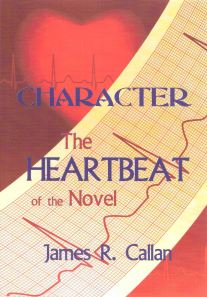My wife and I had visited all fifty of these United States, except
North Dakota. So we made a point a few years ago to visit North Dakota. On the
way home, we toured South Dakota and stopped at the monument to Crazy Horse.
While there, I discovered this quote by that great Indian warrior.
“You are only as strong as your enemy.”
 |
|
(c) CanStockPhoto.com / Oralleff
|
I realized he was speaking not only to his people, but to writers. And
what he was saying was this. Your protagonist is only as good as your
antagonist. If you have a weak antagonist, you cannot have a strong
protagonist. You hero must have a formidable opponent to be a strong character.
Create a weak, poorly defined antagonist and your main character has nothing to
work against. It would be like a six foot seven inch college basketball star
playing one-on-one against a five foot tall twelve year-old. No suspense. No
conflict. No fun. No interest.
You cannot develop much suspense, or even much conflict, if there is not a strong force trying to defeat the hero. Even if the reader believes that the protagonist will certainly win, there needs to be some doubt. There needs to be some concern over what this will cost your hero, even if he wins. What collateral damage will be done? How will the protagonist’s friends, or people he is trying to protect, be affected?
To this end, it is often a good ploy to make the antagonist stronger than the protagonist. Perhaps smarter, as well. This may be the time the antagonist wins. It is worthwhile to actually build an antagonist and a plan so that he will win. Think like you are a backer of the antagonist. And let this come across in the book.
Then, you must work to let the good guy win at the last minute. But, he cannot win by luck. You don’t want the gods to save him. So, how do you accomplish his win?
Early in the book, you put in place the flaw in the antagonist and the asset in the protagonist that will provide the means for the good guy to defeat the bad guy. You do this casually, at a time when it makes little difference, in a manner that catches little attention. But, those qualities are there. Then, three hundred pages later, those very things provide a logical and believable way for the protagonist to win.
Does this take a good bit of work and planning? Yes. Is it worth it? Absolutely. The conclusion is logical. No one can cry foul. The tools were there, just unnoticed until the crucial time.
So, develop a strong, worthy opponent (with just one little flaw). Now, the protagonist has her work cut out for her. But in the end, she will rise to the occasion and save the day. Good hero. Good job. Good book.
 About James R. Callan:
About James R. Callan:After a successful career in mathematics and computer science, receiving grants from the National Science Foundation and NASA, and being listed in Who’s Who in Computer Science and Two Thousand Notable Americans, James R. Callan turned to his first love—writing. He wrote a monthly column for a national magazine for two years, and published four non-fiction books. He now concentrates on his favorite genre, mysteries, with his sixth book releasing in Spring, 2014.
Website
Blog
Amazon Author page
Twitter: @jamesrcallan
Character: The Heartbeat of the Novel
(Oak Tree Press, 2013)
Find it on Amazon


Write Right! was moved from WordPress to Blogger. I was able to move the posts, but not the comments. Comments from this post may be seen at:
ReplyDeletehttp://delialatham.wordpress.com/2014/01/23/what-the-great-indian-warrior-crazy-horse-taught-me-about-writing/